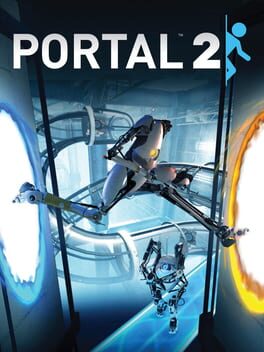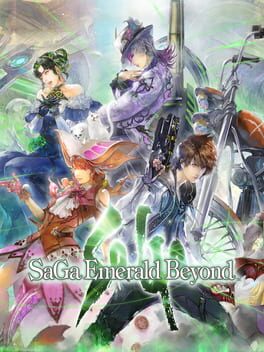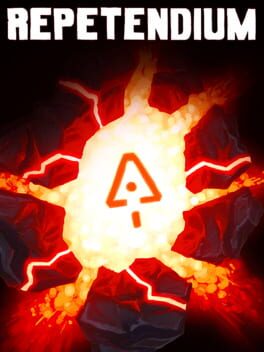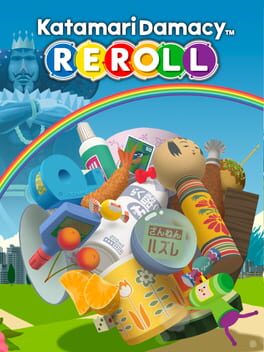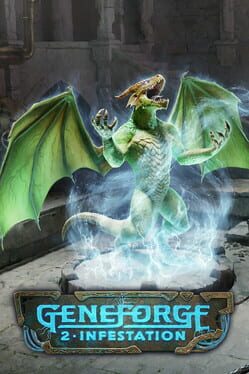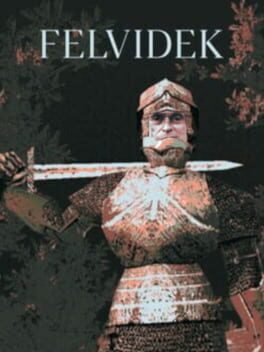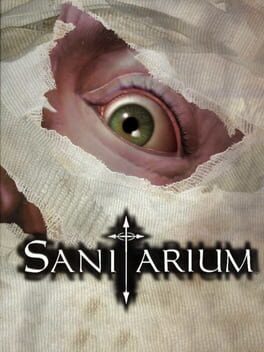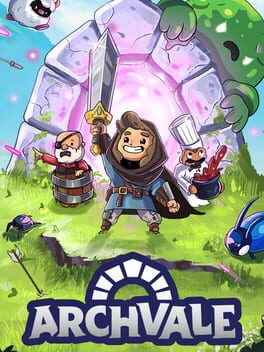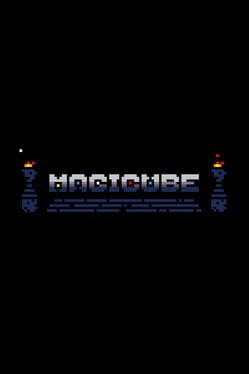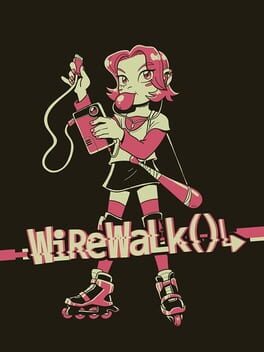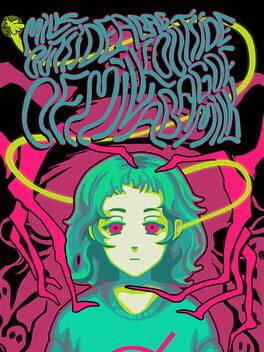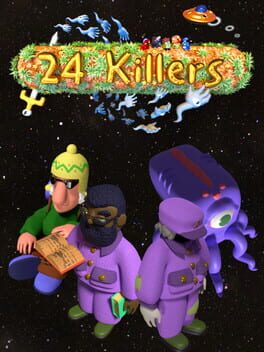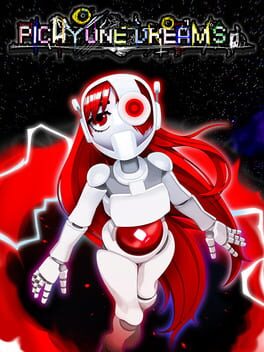jademonkey
2011
Much like the first game, the story and humor are on point in Portal 2. Wheatley is a great counterpart for GLaDOS. The mechanics are substantially expanded from the first game with the various types of goo, and I enjoyed the variety of new puzzles that provided.
The intro to the game really drags on, though, with lots of incredibly easy puzzles and loading screens. I would have preferred if it jumped into more challenging puzzles much more quickly. I liked the general idea of the non-puzzle areas, but I did get a bit tired of hunting around for the little bit of wall that I could put a portal on.
Those are just minor complaints, though. While Portal 2 isn't necessarily a personal favorite, I can see why it's generally rated among the best games of all time.
The intro to the game really drags on, though, with lots of incredibly easy puzzles and loading screens. I would have preferred if it jumped into more challenging puzzles much more quickly. I liked the general idea of the non-puzzle areas, but I did get a bit tired of hunting around for the little bit of wall that I could put a portal on.
Those are just minor complaints, though. While Portal 2 isn't necessarily a personal favorite, I can see why it's generally rated among the best games of all time.
2024
I think I just no-lifed SaGa Emerald Byond harder than any game I've ever played before, even as a kid on summer break. Much less as a working adult in my late 30s.
I'll get a few basics out of the way before jumping into my rants on what I like.
This is a budget game. The character models and UI design really show the lack of money. Voice acting is very sparse.
This is not a narrative tour de force. The storylines are schlocky B-movie kitchen-sink nonsense, but, if you like that type of thing, it's very fun and frequently funny. I had an absolute blast with it. I love singing robots and saving molemen and helping plant people bloom, but I can easily see people being put off.
This is not a standard JRPG with dungeons and exploration. You move from event to event on a pop-up book like map, engaging with visual novel type sections or combat. It's a stripped down experience in many ways. As with the narrative, I enjoy this and relish the change of pace, but can easily see how others might not.
Kenji Ito delivered another banger soundtrack. This might be the thing Emerald Beyond has most in common with its higher budget cousins from Square.
With that out of the way, I'll dig into the real meat of what I love about Emerald Beyond. There are two main factors: the combat and the new-game plus cycle.
The combat is absolutely excellent, and sits as my favorite JRPG combat, maybe even surpassing SaGa Scarlet Grace. Much like Scarlet Grace, it's all about timeline manipulation and features a shared action point pool for your party. The specifics of how "united attacks" work has changed and is easier to perform -- for both you and your enemies. More importantly, there's far more variety in your characters -- humans with a ton of weapon types and magic, mechs that scale off equipment and get unique abilities from it, monsters that absorb enemy skills, and ephemerals who get more powerful as they cyclically die and are reborn. The systems are so much fun. Well, except for trading, but I'll circle back to that.
The most mind-blowing thing about the game is its new-game plus structure. There are 5 characters with their own stories and 17 worlds, each also with their own story. All of these stories -- characters and worlds -- can change across successive playthroughs. You can make different choices on who to help, sometimes new options are simply available to you, sometimes you get an entirely different story. Sometimes you recruit entirely different allies. The second playthrough for some characters is almost a sequel to their initial playthrough. It's so cool to see the huge variety in ways things can possible play out as you come back for successive runs. All of the games systems are made to work over multiple 5-20 hour runs, so your overall strength and progress is moving forward even when you restart with a new character.
My biggest complaint about the game is the aforementioned trading system. Essentially, once unlocked, after each and every battle, you have the option to 'sell' items for a random choice from several items, and the option to 'buy' items in fixed deals. These deals are all based on your trading rank, which takes hundreds of trades to level up. The best way to do this is to constantly trade high level weapons for other high level weapons that you then trade for more and so on. It's nothing but tedium, and I don't even have it maxed out after 75 hours of play. The UI is slow, requires a ton of clicks, and is just overall miserable to interact with. Unfortunately, it's the best and most consistent way to get crafting materials, so if you choose to ignore it, you are putting yourself at a huge disadvantage. It wasn't enough to knock the game out of favorite territory for me, but it was extremely annoying and unnecessary -- they could have just tied the trades to your battle rank and had the interface be an option directly at the end of battle screen. I guess it wouldn't be a SaGa game without at least one terrible system, though.
So, uh, rant about trading aside, Emerald Beyond has made its way right to the top of my favorites list. I never enjoy a game for 75 hours and still have plans to come back for more after a break. That just doesn't happen for me. I'm literally considering figuring out of I can mod trading out of the game. Give the demo a try. You'll probably hate it, but you might love it as much as I do.
I'll get a few basics out of the way before jumping into my rants on what I like.
This is a budget game. The character models and UI design really show the lack of money. Voice acting is very sparse.
This is not a narrative tour de force. The storylines are schlocky B-movie kitchen-sink nonsense, but, if you like that type of thing, it's very fun and frequently funny. I had an absolute blast with it. I love singing robots and saving molemen and helping plant people bloom, but I can easily see people being put off.
This is not a standard JRPG with dungeons and exploration. You move from event to event on a pop-up book like map, engaging with visual novel type sections or combat. It's a stripped down experience in many ways. As with the narrative, I enjoy this and relish the change of pace, but can easily see how others might not.
Kenji Ito delivered another banger soundtrack. This might be the thing Emerald Beyond has most in common with its higher budget cousins from Square.
With that out of the way, I'll dig into the real meat of what I love about Emerald Beyond. There are two main factors: the combat and the new-game plus cycle.
The combat is absolutely excellent, and sits as my favorite JRPG combat, maybe even surpassing SaGa Scarlet Grace. Much like Scarlet Grace, it's all about timeline manipulation and features a shared action point pool for your party. The specifics of how "united attacks" work has changed and is easier to perform -- for both you and your enemies. More importantly, there's far more variety in your characters -- humans with a ton of weapon types and magic, mechs that scale off equipment and get unique abilities from it, monsters that absorb enemy skills, and ephemerals who get more powerful as they cyclically die and are reborn. The systems are so much fun. Well, except for trading, but I'll circle back to that.
The most mind-blowing thing about the game is its new-game plus structure. There are 5 characters with their own stories and 17 worlds, each also with their own story. All of these stories -- characters and worlds -- can change across successive playthroughs. You can make different choices on who to help, sometimes new options are simply available to you, sometimes you get an entirely different story. Sometimes you recruit entirely different allies. The second playthrough for some characters is almost a sequel to their initial playthrough. It's so cool to see the huge variety in ways things can possible play out as you come back for successive runs. All of the games systems are made to work over multiple 5-20 hour runs, so your overall strength and progress is moving forward even when you restart with a new character.
My biggest complaint about the game is the aforementioned trading system. Essentially, once unlocked, after each and every battle, you have the option to 'sell' items for a random choice from several items, and the option to 'buy' items in fixed deals. These deals are all based on your trading rank, which takes hundreds of trades to level up. The best way to do this is to constantly trade high level weapons for other high level weapons that you then trade for more and so on. It's nothing but tedium, and I don't even have it maxed out after 75 hours of play. The UI is slow, requires a ton of clicks, and is just overall miserable to interact with. Unfortunately, it's the best and most consistent way to get crafting materials, so if you choose to ignore it, you are putting yourself at a huge disadvantage. It wasn't enough to knock the game out of favorite territory for me, but it was extremely annoying and unnecessary -- they could have just tied the trades to your battle rank and had the interface be an option directly at the end of battle screen. I guess it wouldn't be a SaGa game without at least one terrible system, though.
So, uh, rant about trading aside, Emerald Beyond has made its way right to the top of my favorites list. I never enjoy a game for 75 hours and still have plans to come back for more after a break. That just doesn't happen for me. I'm literally considering figuring out of I can mod trading out of the game. Give the demo a try. You'll probably hate it, but you might love it as much as I do.
2022
Repetendium is a competent-enough bullet heaven game with a side of mining. You pick a character (auto aim or not, mainly) and a weapon from the usual varieties of shotguns, grenade launchers and lasers at the start. The upgrades you get during a run are mostly stand fare and a bit limited right now, so two runs with the same weapon end up feeling very same-y. It's in early access, so I may check back in after some updates and more content is added. It does have a co-op mode, so I may check that out at some point as well.
I got Katamari Damacy Reroll in some Bandai Namco Bundle last year. I honestly didn't have much interest in it -- I'd tried the original 20 years ago at a friends house and thought the controls were horrible and why would I even want to roll things up anyway?
Well, last week, I couldn't decide what to play and a friend told me to play a game that starts with K. Katamari Damacy fit the bill, so why not give it another shot?
Turns out, rolling things up is fun and the controls are just fine after about 10 minutes of getting used to them. The sense of progression from going to a tiny katamari, carefully navigating a park while dodging cats, dogs, and pineapples, to outright rolling up entire cities is great. It's so cathartic to go back to an area you were getting bounced around in a bunch and just steamroll the entire place.
The wacky, funky sound track is absolutely perfect. I honestly couldn't imagine a more perfect accompaniment to the game. The bizarre cutscenes were also a joy, particularly the ending.
I only have a couple of minor complaints here. There were a few objects that seemed to require a way bigger katamari than I'd expect to pick up. Not a big deal, but slightly annoying. I also didn't care for the challenge levels that were about rolling up a single item or guesstimating the katamari's size, but you only have to show up to complete those levels if you're not going for a high score.
Overall, a fun, chill time. It's just about the perfect game to pop into for 15-30 minutes and come out smiling.
Well, last week, I couldn't decide what to play and a friend told me to play a game that starts with K. Katamari Damacy fit the bill, so why not give it another shot?
Turns out, rolling things up is fun and the controls are just fine after about 10 minutes of getting used to them. The sense of progression from going to a tiny katamari, carefully navigating a park while dodging cats, dogs, and pineapples, to outright rolling up entire cities is great. It's so cathartic to go back to an area you were getting bounced around in a bunch and just steamroll the entire place.
The wacky, funky sound track is absolutely perfect. I honestly couldn't imagine a more perfect accompaniment to the game. The bizarre cutscenes were also a joy, particularly the ending.
I only have a couple of minor complaints here. There were a few objects that seemed to require a way bigger katamari than I'd expect to pick up. Not a big deal, but slightly annoying. I also didn't care for the challenge levels that were about rolling up a single item or guesstimating the katamari's size, but you only have to show up to complete those levels if you're not going for a high score.
Overall, a fun, chill time. It's just about the perfect game to pop into for 15-30 minutes and come out smiling.
Geneforge 2: Infestation is, unsurprisingly, a direct sequel to Geneforge 1: Mutagen. All of the things I liked about that game hold true here as well: great exploration, world building, factions, choice and consequence, and so on. It nails the core RPG experience. My review for the first game describes the setting and why I like it so much, so I'll skip writing that out again.
In Geneforge 1, I burned out because there was just too much meaningless combat, and quit 30 hours in. That didn't happen this time around. Geneforge 2 simply makes combat more rewarding. There were more useful equipment upgrades to find. Most spells and abilities in from the first game received some tweaks, resulting in more viable combat options. There is also a whole extra tier of creations and spells to unlock late game. This helped keep things a bit more varied. I still did hit the point where I was ready to finish, but, luckily, I was just a few hours away from being able to complete the main quest at that time. I did leave a whole heap of sidequests unfinished, but that's perfectly fine.
The ending itself was very satisfying. I'm glad I was able to stick it through this time. Great game.
In Geneforge 1, I burned out because there was just too much meaningless combat, and quit 30 hours in. That didn't happen this time around. Geneforge 2 simply makes combat more rewarding. There were more useful equipment upgrades to find. Most spells and abilities in from the first game received some tweaks, resulting in more viable combat options. There is also a whole extra tier of creations and spells to unlock late game. This helped keep things a bit more varied. I still did hit the point where I was ready to finish, but, luckily, I was just a few hours away from being able to complete the main quest at that time. I did leave a whole heap of sidequests unfinished, but that's perfectly fine.
The ending itself was very satisfying. I'm glad I was able to stick it through this time. Great game.
2007
I remember going over to a friend's dorm and watching him do a speed run of Portal when it first came out, yet somehow I forgot that I'd actually played it myself until I was over halfway through the game this time around. Weird how memory works.
Anyway, it's just as great of a game as I didn't remember it being.
Portal does a great job of teaching mechanics, has a great central conceit, and has great humor. There's only a couple of small things that keep it from five stars for me. Primarily, the game just doesn't go quite far enough with the concepts for my tastes. I'd like a bit more of a challenge and to see the ability used in a couple more ways. The only other complaint is that the portals are a bit skinny which makes some execution slightly more annoying than is necessary. That's really a nitpick, though.
A certified classic.
Anyway, it's just as great of a game as I didn't remember it being.
Portal does a great job of teaching mechanics, has a great central conceit, and has great humor. There's only a couple of small things that keep it from five stars for me. Primarily, the game just doesn't go quite far enough with the concepts for my tastes. I'd like a bit more of a challenge and to see the ability used in a couple more ways. The only other complaint is that the portals are a bit skinny which makes some execution slightly more annoying than is necessary. That's really a nitpick, though.
A certified classic.
2024
Another cool little RPGmaker game.
Felvidek is set in 15th century Slovakia/Hungary, in small fiefdom beset by both the Hussite uprising and other, more nefarious, cultists. There's not a whole lot of depth in the period politics or anything, but there's enough to make it an engaging and unique backdrop for the story. The game is frequently quite funny, with the oddly realistic style and dry humor giving it a bit of a Monty Python feel. The old-timey dialogue is fun and enhances both the humor and immersion, though at times the sentence structures get a bit difficult to parse.
Felvidek not a big game, but exploration is fun and rewarding. Your characters only get more powerful through acquiring better equipment and stat enhancing food items, so checking out all of the hidden corners and looking for sidequests is heartily rewarded.
Unfortunately, the combat, despite featuring amusing animations, is about as basic of RPGmaker fare as you get. You have a very limited number of abilities and a low amount of uses of those abilities. To the games credit, you'll want to make use of your stuns and armor piercing abilities, but it's just not all that exciting. Despite running out of the 'tool' points that fuel your special abilities quickly, you can essentially always backtrack to a church after each fight and refill both those points and your HP. This means it's optimal to just always go all in and then run back for healing, which is a bit annoying. I'd have preferred if the game was a bit harder and just healed you to full after each fight in some fashion. Or, frankly, I think it would have been more enjoyable as an adventure game with a few puzzle fights. Either way, the game is fairly short, taking me just 5.5 hours while doing my best to explore everything, and combat wasn't overused. So, in the end, the milquetoast combat wasn't that much of an issue.
The soundtrack was a nice breath of fresh air, with some acoustic guitar, some prog-rockish tunes, and a bit of avant-garde electronica. Overall, I felt a lot of 70s vibes, which I absolutely love. Great stuff.
In the end, Felvidek didn't blow me away, but was definitely worth experiencing for the presentation and humor.
Felvidek is set in 15th century Slovakia/Hungary, in small fiefdom beset by both the Hussite uprising and other, more nefarious, cultists. There's not a whole lot of depth in the period politics or anything, but there's enough to make it an engaging and unique backdrop for the story. The game is frequently quite funny, with the oddly realistic style and dry humor giving it a bit of a Monty Python feel. The old-timey dialogue is fun and enhances both the humor and immersion, though at times the sentence structures get a bit difficult to parse.
Felvidek not a big game, but exploration is fun and rewarding. Your characters only get more powerful through acquiring better equipment and stat enhancing food items, so checking out all of the hidden corners and looking for sidequests is heartily rewarded.
Unfortunately, the combat, despite featuring amusing animations, is about as basic of RPGmaker fare as you get. You have a very limited number of abilities and a low amount of uses of those abilities. To the games credit, you'll want to make use of your stuns and armor piercing abilities, but it's just not all that exciting. Despite running out of the 'tool' points that fuel your special abilities quickly, you can essentially always backtrack to a church after each fight and refill both those points and your HP. This means it's optimal to just always go all in and then run back for healing, which is a bit annoying. I'd have preferred if the game was a bit harder and just healed you to full after each fight in some fashion. Or, frankly, I think it would have been more enjoyable as an adventure game with a few puzzle fights. Either way, the game is fairly short, taking me just 5.5 hours while doing my best to explore everything, and combat wasn't overused. So, in the end, the milquetoast combat wasn't that much of an issue.
The soundtrack was a nice breath of fresh air, with some acoustic guitar, some prog-rockish tunes, and a bit of avant-garde electronica. Overall, I felt a lot of 70s vibes, which I absolutely love. Great stuff.
In the end, Felvidek didn't blow me away, but was definitely worth experiencing for the presentation and humor.
1998
I remember seeing Sanitarium at Best Buy when I was about 10 years old, thinking that people are into some weird things, and dismissing it out of hand. In the last few years, several horror point and click games made their way on to my all time favorites list -- Strangeland and Stasis: Bone Totem in particular. While looking for similar games, I read that both were inspired by Sanitarium, that weird game with the guy in full facial bandages I'd seen so many years before. I picked it up on Steam last year, and finally got around to playing it this week.
So how did it hold up?
It was as weird as child me thought, and a bit painful to play. It was also fascinating and worth the time.
You play as a patient in a sanitarium, who, of course, is questionably sane and suffers from amnesia. This isn't just any sanitarium, though. It's a gothic cathedral, castle of a sanitarium. As you regain memories, you alternate exploring the sanitarium and other worlds, each of which feels like it's own little B-movie horror flick, but all of which tie into the rather satisfying overarching narrative. The environments are consistently unsettling, and the subject matter always a bit gruesome, with some fairly heavy themes (e.g. child abuse). Saying much more about the story would be spoilers, so I'll just say I felt it had a strong conclusion.
The point and click puzzles weren't as bad as I was worried about, with most of the logic being fairly intuitive and even enjoyable. There were a few places where the pixel hunting really hurt the flow of the game. The biggest issue with the gameplay is the movement, though. Sanitarium's protagonist is one of the slowest beings ever to grace a video game. To make matters worse, there is a click and hold control scheme, in which he moves toward the cursor when you right click -- but only along the 8 cardinal directions and diagonals. I ended up resorting to a walkthrough for a couple of the pixel hunt situations since I simply could not work up the willpower to make another clunky lap around the current area.
Still, the game is absolutely worth a play for a modern audience. The story holds up well, the environments are still quite interesting, and the puzzles are enjoyable or easily bypassed with walkthrough. It's worth playing on its own merits, not just for the impact that its had on the horror adventure genre.
So how did it hold up?
It was as weird as child me thought, and a bit painful to play. It was also fascinating and worth the time.
You play as a patient in a sanitarium, who, of course, is questionably sane and suffers from amnesia. This isn't just any sanitarium, though. It's a gothic cathedral, castle of a sanitarium. As you regain memories, you alternate exploring the sanitarium and other worlds, each of which feels like it's own little B-movie horror flick, but all of which tie into the rather satisfying overarching narrative. The environments are consistently unsettling, and the subject matter always a bit gruesome, with some fairly heavy themes (e.g. child abuse). Saying much more about the story would be spoilers, so I'll just say I felt it had a strong conclusion.
The point and click puzzles weren't as bad as I was worried about, with most of the logic being fairly intuitive and even enjoyable. There were a few places where the pixel hunting really hurt the flow of the game. The biggest issue with the gameplay is the movement, though. Sanitarium's protagonist is one of the slowest beings ever to grace a video game. To make matters worse, there is a click and hold control scheme, in which he moves toward the cursor when you right click -- but only along the 8 cardinal directions and diagonals. I ended up resorting to a walkthrough for a couple of the pixel hunt situations since I simply could not work up the willpower to make another clunky lap around the current area.
Still, the game is absolutely worth a play for a modern audience. The story holds up well, the environments are still quite interesting, and the puzzles are enjoyable or easily bypassed with walkthrough. It's worth playing on its own merits, not just for the impact that its had on the horror adventure genre.
2021
I just noticed I never ported this review from a couple years back to backloggd. As I guessed at the end, I did not remember much about the game! Anyway, on to the original review.
Archvale is what it says on the tin -- a bullet hell RPG. Basically, take some twin stick gameplay like Enter the Gungeon or Nuclear Throne and wrap it in 2D Zelda-esque room exploration, and that's your game.
The combat is solid. Enemy attack patterns are hectic but rarely feel unfair. There's enough variety in the weapons and build options -- achieved through weapon, armor, and Paper Mario style badge system -- to keep you entertained for the 10 hour runtime. I wasn't a fan of the badge shrines that required you to dodge increasingly difficult bullet patterns without getting hit. The ones late in the game are fairly difficult, but not required, so I just skipped them. I also didn't care much for the platforming portions in the dungeons, since the dodge feels just a bit finnicky on a controller, but they weren't so prevalent to really bother me.
I think the game missed the mark in terms of exploration. You're free to go to zones out of order, which made for some really fun runs of trying to survive long enough to get to a later game town and unlock powerful equipment early. Unfortunately, there's not much in the way of interaction with the environments. There are no hidden areas to look for or puzzles in the dungeons or even bits of lore scattered about, so you just kinda go from screen to screen killing (and very occasionally platforming).
The pixel art and music are well enough done, though nothing was particularly memorable.
All in all, Archvale was an experience I was happy enough to have. I probably won't remember much about it in a year, but it was an enjoyable enough 10 hours.
Archvale is what it says on the tin -- a bullet hell RPG. Basically, take some twin stick gameplay like Enter the Gungeon or Nuclear Throne and wrap it in 2D Zelda-esque room exploration, and that's your game.
The combat is solid. Enemy attack patterns are hectic but rarely feel unfair. There's enough variety in the weapons and build options -- achieved through weapon, armor, and Paper Mario style badge system -- to keep you entertained for the 10 hour runtime. I wasn't a fan of the badge shrines that required you to dodge increasingly difficult bullet patterns without getting hit. The ones late in the game are fairly difficult, but not required, so I just skipped them. I also didn't care much for the platforming portions in the dungeons, since the dodge feels just a bit finnicky on a controller, but they weren't so prevalent to really bother me.
I think the game missed the mark in terms of exploration. You're free to go to zones out of order, which made for some really fun runs of trying to survive long enough to get to a later game town and unlock powerful equipment early. Unfortunately, there's not much in the way of interaction with the environments. There are no hidden areas to look for or puzzles in the dungeons or even bits of lore scattered about, so you just kinda go from screen to screen killing (and very occasionally platforming).
The pixel art and music are well enough done, though nothing was particularly memorable.
All in all, Archvale was an experience I was happy enough to have. I probably won't remember much about it in a year, but it was an enjoyable enough 10 hours.
2023
Magicube is one of the simplest and hardest puzzle games I've ever played. You play a wizard who can push blocks, jump 1 tile high, and shoot a magic cube that comes into existence against whatever object it hits and replaces any previous magic cube you had made. The goal is to get the magic cube on a pedestal. There's a handful of mechanics introduced as the levels progress -- skulls that stop bricks but not you, buttons that make barriers appear while something is on top of them, etc, but that's it.
The levels are tiny and look like they'll be easy, but they almost never are. The solutions to the levels require you to understand every interaction (e.g. what happens if you're standing in a barrier when it's created?) and frequently seem impossible at first glance. It legitimately feels excellent when you finally figure it out, though!
It's taken me 12 hours to finish 34/50 puzzles, but I've started hitting the point where I'll turn on the game for half an hour and feel like I haven't achieved anything. I really like the game and plan to eventually finish it, but I'm going to at least shift the focus of my puzzle time to some easier games for now.
The levels are tiny and look like they'll be easy, but they almost never are. The solutions to the levels require you to understand every interaction (e.g. what happens if you're standing in a barrier when it's created?) and frequently seem impossible at first glance. It legitimately feels excellent when you finally figure it out, though!
It's taken me 12 hours to finish 34/50 puzzles, but I've started hitting the point where I'll turn on the game for half an hour and feel like I haven't achieved anything. I really like the game and plan to eventually finish it, but I'm going to at least shift the focus of my puzzle time to some easier games for now.
2021
This is a fun little throwback to Zelda: Link's Awakening with a charming Megaman Battle Network style setting. It's been a long time since I played a game of this style, so I struggled a surprising amount early on. Once I got going, though, it wasn't too hard. There are a nice variety of tools and most of the bosses make good use of the new tool you just used in the dungeon, Zelda-style.
I enjoyed the chiptunes quite a bit, particularly the bioanlaysis lab theme. A little aside: The melody of the main theme is a fairly similar to "We All Lift" from Warframe... I sat there humming it for like 30 minutes trying to figure out what it reminded me of haha.
The ending did feel a bit anti-climactic. After dungeon 3, you basically just have a stand alone boss fight that's fairly straightforward, rather than being more puzzle-y like some of the other bosses. I usually don't complain about a game being too short, but I wouldn't have minded a final dungeon here.
Definitely worth a go if you like old school Zelda, especially for the price.
I enjoyed the chiptunes quite a bit, particularly the bioanlaysis lab theme. A little aside: The melody of the main theme is a fairly similar to "We All Lift" from Warframe... I sat there humming it for like 30 minutes trying to figure out what it reminded me of haha.
The ending did feel a bit anti-climactic. After dungeon 3, you basically just have a stand alone boss fight that's fairly straightforward, rather than being more puzzle-y like some of the other bosses. I usually don't complain about a game being too short, but I wouldn't have minded a final dungeon here.
Definitely worth a go if you like old school Zelda, especially for the price.
2024
I didn't play Dragon's Dogma until the PC release of Dark Arisen, but, after a rocky start, it ended up becoming one of my favorite games of all time. I came into Dragon's Dogma II with high expectations, and left with mixed feelings.
I was going to write a big review going into depth on my thoughts, but I just don't want to spend any more time on the game right now, so I'll just write out some of my thoughts off the cuff.
None of the first games problems were fixed, and the conveniences added in Dark Arisen (e.g. eternal ferrystone) are absent as well.
The story lost its fun campiness, but still failed to deliver a solid narrative. Player and NPC motivations needed way more exploration.
My favorite vocations (strider, ranger, assassin) don't really exist this time around and that was a big bummer. Augments are less effective now, which is also a bummer. Combat is still a lot of fun, though.
The exploration itself is good, but travel can be an obnoxious slog. It's a bit baffling that Itsuno was insulting games with fast travel for being uninteresting, but his idea of interesting travel is fighting the same five enemy types every 10 feet. I think a lot of my negative feelings toward the game come from built up annoyance about the travel wasting my time.
The quest design was straight up bad. More clear writing would have gone a long way, but there were some serious missed opportunities to have taverns and the fortune teller give hints for quests. I don't need map markers, but I also don't want to deal with moon logic in a game this big. Undercover quests in particular feel out of place, as they did in the first game.
To sum up my feelings, it's a fun action and exploration game, but everything outside of that is either subpar or actively frustrating. I think I had my hopes set too high. If there's a big DLC/expansion at some point, I'll come back and give it another go. I'll probably include some mods to reduce the tedium the second time around, though. I didn't play the first game before Dark Arisen, and maybe I wouldn't have liked it if I had.
I was going to write a big review going into depth on my thoughts, but I just don't want to spend any more time on the game right now, so I'll just write out some of my thoughts off the cuff.
None of the first games problems were fixed, and the conveniences added in Dark Arisen (e.g. eternal ferrystone) are absent as well.
The story lost its fun campiness, but still failed to deliver a solid narrative. Player and NPC motivations needed way more exploration.
My favorite vocations (strider, ranger, assassin) don't really exist this time around and that was a big bummer. Augments are less effective now, which is also a bummer. Combat is still a lot of fun, though.
The exploration itself is good, but travel can be an obnoxious slog. It's a bit baffling that Itsuno was insulting games with fast travel for being uninteresting, but his idea of interesting travel is fighting the same five enemy types every 10 feet. I think a lot of my negative feelings toward the game come from built up annoyance about the travel wasting my time.
The quest design was straight up bad. More clear writing would have gone a long way, but there were some serious missed opportunities to have taverns and the fortune teller give hints for quests. I don't need map markers, but I also don't want to deal with moon logic in a game this big. Undercover quests in particular feel out of place, as they did in the first game.
To sum up my feelings, it's a fun action and exploration game, but everything outside of that is either subpar or actively frustrating. I think I had my hopes set too high. If there's a big DLC/expansion at some point, I'll come back and give it another go. I'll probably include some mods to reduce the tedium the second time around, though. I didn't play the first game before Dark Arisen, and maybe I wouldn't have liked it if I had.
Milk Oustide... offers a very interesting look into the life and thoughts of a late-teens girl suffering from serious mental illness and trauma. You play as a sort of self-talk, inner voice of the protagonist, generally representing the more rational side of her thoughts. Sometimes you are presented with only irrational choices, though. It creates a very interesting dynamic where you're both playing as the protagonist and not; trying to help her cope but sometimes not able to. It's a clever framing that captures the hopelessness the protagonist can experience at times. I enjoyed the metatextual element of the main character viewing you as a person playing a visual novel/point and click game.
The biggest selling point is perhaps the absolutely unique atmosphere. The art does an excellent job of shifting to match the mental state of the protagonist. The color palette, detail, and even overall style change between many of the scenes in the game to create this effect. The music was similarly on point in creating the feelings of dread and joy that the protagonist could quickly bounce between. There are a couple of tracks in the game that would fight right in on an atmospheric doom metal album (e.g. Sunn O))) ), which fit the themes perfectly and was very cool to hear in a video game.
My main criticism is just that I wanted a bit more. The entire game takes place over the course of the main character getting ready for bed, and takes 1-2 hours to play, depending on how many endings you go for. Even combined with the original game and its 30 minute runtime, it's just not quite enough time to really get to get to know and empathize with the protagonist to the degree I wanted. However, that doesn't keep the Milk duology from being a worthwhile and unique way to spend an evening.
The biggest selling point is perhaps the absolutely unique atmosphere. The art does an excellent job of shifting to match the mental state of the protagonist. The color palette, detail, and even overall style change between many of the scenes in the game to create this effect. The music was similarly on point in creating the feelings of dread and joy that the protagonist could quickly bounce between. There are a couple of tracks in the game that would fight right in on an atmospheric doom metal album (e.g. Sunn O))) ), which fit the themes perfectly and was very cool to hear in a video game.
My main criticism is just that I wanted a bit more. The entire game takes place over the course of the main character getting ready for bed, and takes 1-2 hours to play, depending on how many endings you go for. Even combined with the original game and its 30 minute runtime, it's just not quite enough time to really get to get to know and empathize with the protagonist to the degree I wanted. However, that doesn't keep the Milk duology from being a worthwhile and unique way to spend an evening.
2023
The style is great, the music is great, and there's an undeniable charm to the character interactions. I can see why a lot of people love it, but it never fully clicked with me. Not fully clicking with a game isn't a big problem though -- I can enjoy and appreciate art that isn't quite my thing and come away richer for it.
Unfortunately, I simply didn't enjoy the moment to moment gameplay. Most of the 'minigames' and interactions were just a bit clumsy and annoying to me. Towards the end of the game, you have to gather quite a bit of resources, and, even understanding how to do it well, it felt unnecessarily grindy. I would have enjoyed this more as a point and click or walking simulator, to be honest.
I really wanted to like the game and strung myself along for about 6 hours before deciding that it's just not for me. That said, I'm happy to have had the experience and given some money to an indie dev who made a passion project, and I'm glad that most people who play it seem to click strongly with it.
Unfortunately, I simply didn't enjoy the moment to moment gameplay. Most of the 'minigames' and interactions were just a bit clumsy and annoying to me. Towards the end of the game, you have to gather quite a bit of resources, and, even understanding how to do it well, it felt unnecessarily grindy. I would have enjoyed this more as a point and click or walking simulator, to be honest.
I really wanted to like the game and strung myself along for about 6 hours before deciding that it's just not for me. That said, I'm happy to have had the experience and given some money to an indie dev who made a passion project, and I'm glad that most people who play it seem to click strongly with it.
2023
What a cool game. The core gameplay is a surreal outer-space take on the Vampire Survivors formula, though it asks a bit more of the player than most entries in the genre. This is punctuated with straight up bullet-hell boss fights. Each boss fight is preceded by a bizarre conversation between the hero and the boss that generally establishes a bit of lore and personality. Beating a boss unlocks a Yume Nikki-style dream-horror story segment. Upping the difficulty and tying in a story with some rather compelling themes does a lot to elevate the genre.
This is further bolstered by an absolutely killer breakcore soundtrack that accentuates the stress of playing a bullet hell while maintaining the surreal feeling the rest of the game sets.
It took me a little over 5 hours to get my first victory, and I'll definitely be back for more!
This is further bolstered by an absolutely killer breakcore soundtrack that accentuates the stress of playing a bullet hell while maintaining the surreal feeling the rest of the game sets.
It took me a little over 5 hours to get my first victory, and I'll definitely be back for more!
